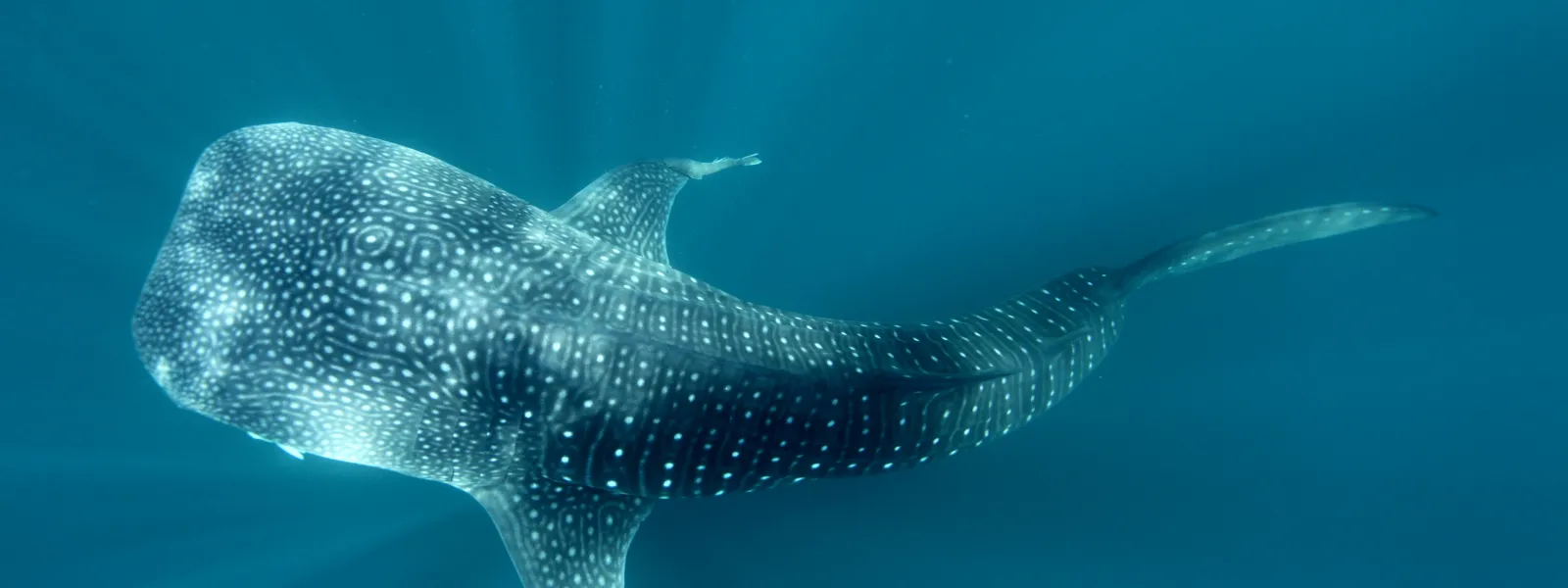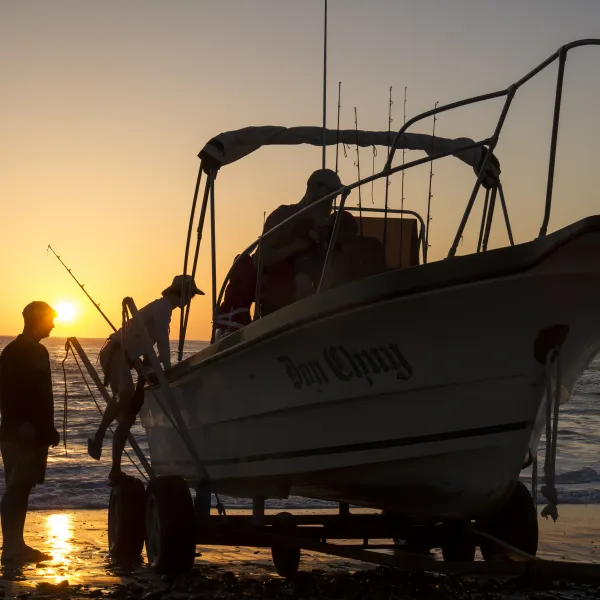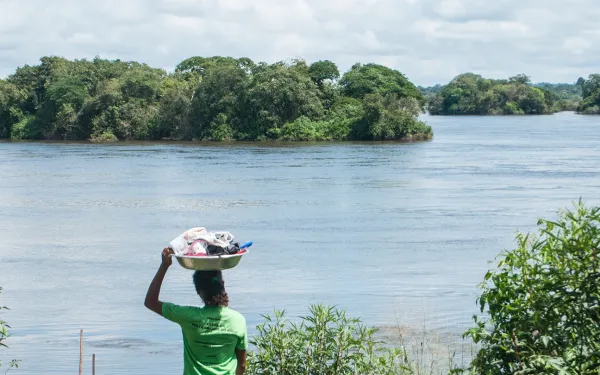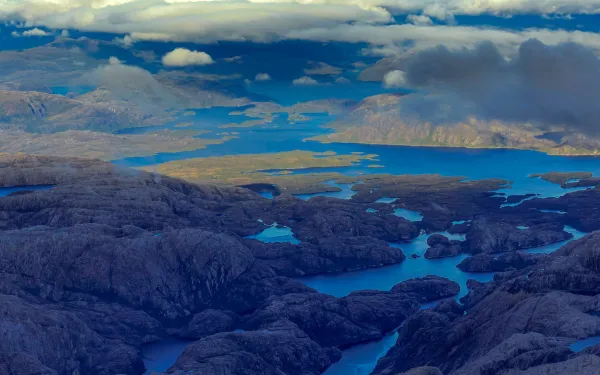
Project
Photo: Carlos AguileraProtecting the rich marine life of Cabo Pulmo Reef
Cabo Pulmo Reef, a 20,000-year-old ecological treasure in Baja California Sur, Mexico, hosts many of the 800 marine species in the Sea of Cortez.
Overfishing almost killed it in the 1980s. But the Mexican government intervened in 1995 to declare it a national park. Since then, the reef has grown, and the surrounding ecosystem has prospered.
Developers repeatedly try to build enormous tourist resorts at Cabo Pulmo. The proposed resorts typically include tens of thousands of hotel rooms, golf courses, an airport, sports clubs, and more—and require new housing development for thousands of employees.
Coral reefs like Cabo Pulmo are extremely vulnerable to the impacts of such poorly planned development. Sewage and wastewater runoff cause a surge in the growth of algae that blocks sunlight, causing the reef to bleach and die.
Fertilizers, herbicides, and pesticides from golf courses contaminate ocean currents and upset the delicate ecological balance of the area. Boating, fishing, and diving stress and break reefs, too.
In an area where water is scarce, tourism infrastructure projects could overexploit aquifers that are already suffering the impacts of climate change.
AIDA's work has been instrumental in ensuring the survival and health of Cabo Pulmo's ecosystems. We continue monitoring the situation and working with national partners to make legal protections for the reef stronger and permanent.
Partners:

Related projects

Human Rights Council addresses the water crisis and environmental defenders protection
The 46th session of the United Nations Human Rights Council is the first to be held entirely online, due to the COVID-19 pandemic. It runs until March 23. The virtual format of this HRC session enabled AIDA to make our first participation ever in the HRC and join the discussions on two of the topics that are at the core of its human rights work: the right to a healthy environment and the protection of environmental human rights defenders. On 03 March, the Special Rapporteur on Human Rights and the Environment, David Boyd, presented his report “Human Rights and the Global Water Crisis” to the Human Rights Council. In it, Boyd highlighted the severe impacts of water pollution, water scarcity and water-related disasters on the rights to life, health, education, food, development and the right to a healthy environment. He also emphasized that climate change is a risk-multiplier, exacerbating water-related human rights issues. The Special Rapporteur called on States to incorporate a rights-based approach in both their climate strategies and water plans. Finally, Boyd reiterated his call for the Human Rights Council to support the initiative for a resolution to recognize that everyone everywhere has the right to live in a safe, clean, healthy and sustainable environment. In the Interactive Dialogue that followed Boyd’s presentation, AIDA Attorney Rosa Peña denounced the negative impacts of mega-dams, coal mining and fracking on human rights and water access in Latin America. She noted that these projects not only threaten the human rights of local communities but also exacerbate the climate crisis. She called the attention of the Special Rapporteur to the communities affected by the Belo Monte mega-dam in the Brazilian Amazon. Currently, implementation of the so-called ‘Consensus Hydrogram’ in the Xingu River threatens the lives of local communities, pollutes the water, dries up the river and causes food insecurity and severe biodiversity loss. On March 4, it was the turn of the Special Rapporteur on Human Rights Defenders, Mary Lawlor, to engage in an Interactive Dialogue on ”Final warning: death threats and killings of human rights defenders” She concluded that lack of political will is one of the reasons why various States fail in their moral and legal obligation to protect Human Rights Defenders, and therefore called for more effective responses to the threats against them. Representing AIDA in the Interactive Dialogue, Attorney Marcella Torres highlighted that Latin America is the most dangerous region in the world for environmental human rights defenders and urged all States to actively protect them. She turned the spotlight on the situation of environmental defenders in Brazil, Guatemala and Colombia, where the invasion of indigenous lands, mega-dams and fracking are closely related to the increase in violence against defenders. She concluded by reminding States that the protection of environmental defenders should promote the recognition of the right to a healthy environment, and provide guarantees so that all people are free to exercise their right to defend human rights. See AIDA’s contributions in the Interactive Dialogues in full:
Read more
Human Rights Council addresses the water crisis and environmental defenders protection
The 46th session of the United Nations Human Rights Council is the first to be held entirely online, due to the COVID-19 pandemic. It runs until March 23. The virtual format of this HRC session enabled AIDA to make our first participation ever in the HRC and join the discussions on two of the topics that are at the core of its human rights work: the right to a healthy environment and the protection of environmental human rights defenders. On 03 March, the Special Rapporteur on Human Rights and the Environment, David Boyd, presented his report “Human Rights and the Global Water Crisis” to the Human Rights Council. In it, Boyd highlighted the severe impacts of water pollution, water scarcity and water-related disasters on the rights to life, health, education, food, development and the right to a healthy environment. He also emphasized that climate change is a risk-multiplier, exacerbating water-related human rights issues. The Special Rapporteur called on States to incorporate a rights-based approach in both their climate strategies and water plans. Finally, Boyd reiterated his call for the Human Rights Council to support the initiative for a resolution to recognize that everyone everywhere has the right to live in a safe, clean, healthy and sustainable environment. In the Interactive Dialogue that followed Boyd’s presentation, AIDA Attorney Rosa Peña denounced the negative impacts of mega-dams, coal mining and fracking on human rights and water access in Latin America. She noted that these projects not only threaten the human rights of local communities but also exacerbate the climate crisis. She called the attention of the Special Rapporteur to the communities affected by the Belo Monte mega-dam in the Brazilian Amazon. Currently, implementation of the so-called ‘Consensus Hydrogram’ in the Xingu River threatens the lives of local communities, pollutes the water, dries up the river and causes food insecurity and severe biodiversity loss. On March 4, it was the turn of the Special Rapporteur on Human Rights Defenders, Mary Lawlor, to engage in an Interactive Dialogue on ”Final warning: death threats and killings of human rights defenders” She concluded that lack of political will is one of the reasons why various States fail in their moral and legal obligation to protect Human Rights Defenders, and therefore called for more effective responses to the threats against them. Representing AIDA in the Interactive Dialogue, Attorney Marcella Torres highlighted that Latin America is the most dangerous region in the world for environmental human rights defenders and urged all States to actively protect them. She turned the spotlight on the situation of environmental defenders in Brazil, Guatemala and Colombia, where the invasion of indigenous lands, mega-dams and fracking are closely related to the increase in violence against defenders. She concluded by reminding States that the protection of environmental defenders should promote the recognition of the right to a healthy environment, and provide guarantees so that all people are free to exercise their right to defend human rights. See AIDA’s contributions in the Interactive Dialogues in full:
Read more
Legal resistance to the expansion of salmon farming in Chile
By Claudia Arancibia (AIDA), Victoria Belemmi (FIMA) y Estefanía González (Greenpeace Chile) In the Magallanes Region of Southern Patagonia, one of Chile’s most pristine natural areas, the indigenous communities who have lived amongst these awe-inspiring fjords and channels for six thousand years are now fighting to project them. A coalition of Kawésqar communities – organized as Kawésqar Atap, As Wal Lajep, Grupos Familiares Nómades del Mar, Residentes Río Primero e Inés Caro – are defending their land and seas from the expansion of the salmon industry into their ancestral territory. In February, they won an important legal victory. Chile’s Supreme Court ruled in their favor, repealing an environmental permit that had authorized the construction of a salmon farm in Lake Balmaceda, citing the project’s failure to consider the observations of local communities. The ruling overturns a 2018 decision of the Third Environment Court that had rejected the communities’ claims. This case sets an important precedent—the nation’s highest court recognized the value of indigenous participation in the environmental evaluation process of projects that could affect ancestral territories. It also reaffirmed the State's obligation to respect the indigenous consultation process and to comply with the provisions of national environmental law and Convention 169 of the International Labor Organization, ratified by Chile. The Supreme Court's ruling represents progress toward understanding that the participation of indigenous, local and traditional communities—in addition to being a right—is a valuable input for decision-making. In November 2020, another important legal development acknowledged the damages caused by these salmon farming operations. The Third Environmental Court recognized that the lack of oxygen in the waters of Chilean Patagonia is directly related to the operation of salmon farms. Despite being informed of the situation, the Environmental Superintendent had previously ignored the causal relationship between salmon farming and environmental damages, arguing that, often, the decrease of oxygen was due to natural causes such as marine currents, the geography of the area, or climate change. The Court’s ruling also constitutes a key precedent, as it associates industrial salmon production with the dangerous percentage of areas with low oxygen levels in the seas of Chilean Patagonia. Known as anaerobism, this condition is caused by the large amount of organic matter (uneaten food and feces) that the salmon industry discharges into the sea, inadequate handling of dead fish, and the amount of farmed fish per square meter, which exceeds the carrying capacity of the waters. What about sanctions? Despite the progress described above, Chilean authorities still face serious problems in adequately controlling salmon farming and preventing the damages the industry’s expansion is causing. It’s clear that the sanctions imposed on offending companies have not been sufficiently exemplary or dissuasive. In spite of multiple sanctioning procedures against several companies, no efforts have been made to improve sanitary and environmental standards, neither of which is considered by the environmental authorities when granting operating permits. For a revelatory case study, we need look no farther than a Magallanes scandal known as “Salmon Leaks.” In 2019, a journalistic investigation uncovered that the company Nova Austral was hiding the amount of fish that died daily in their farms in the Alberto de Agostini National Park. A subsequent report revealed that the company also adulterated the seabed with heavy machinery (until it was basically dead), in order to hide its anaerobic condition and obtain permission to continue farming salmon in biologically deteriorated marine areas. In response, the Court of Appeals of Punta Arenas sanctioned the company with the maximum fine and the suspension of a productive cycle. In 2020, the State Defense Council sued the company for possible fraud because it was collecting tax benefits under the Navarino Law in breach of its obligation to "make rational use of the natural resources of the Magallanes region, preserving nature and the environment." Then, General Treasury of the Republic withheld four payments covering up to four months of subsidies under the law. Despite the multiple scandals and sanctions imposed, the company continues to advertise the "sustainability" of its salmon. The future of the Kawésqar Reserve Now, Nova Austral is seeking to relocate four of its aquaculture concessions to Kawésqar National Reserve, with prior approval from the Environmental Evaluation Service. Six other projects are currently undergoing environmental evaluation for the same purpose. This is alarming for many reasons, but principal among them is the fact that the Reserve lacks an adequate management plan to safeguard its conservation objectives. This leaves the area exposed potentially serious impacts to its natural wealth and the ancestral rights of the Kawésqar indigenous communities. It’s urgent that the Reserve’s management plan prohibits salmon farming within its boundaries, due to the outright incompatibility of salmon farming with the reserve’s objectives. We have much to learn from the Kawésqar communities, who reaffirm the protection of the seas of the Patagonian archipelago as the basis for protecting their worldview, their cultural identity and their way of life. What will it take for the rest of the country to defend the Patagonian seas as a natural treasure vital not just for Chile, but for the world?
Read more